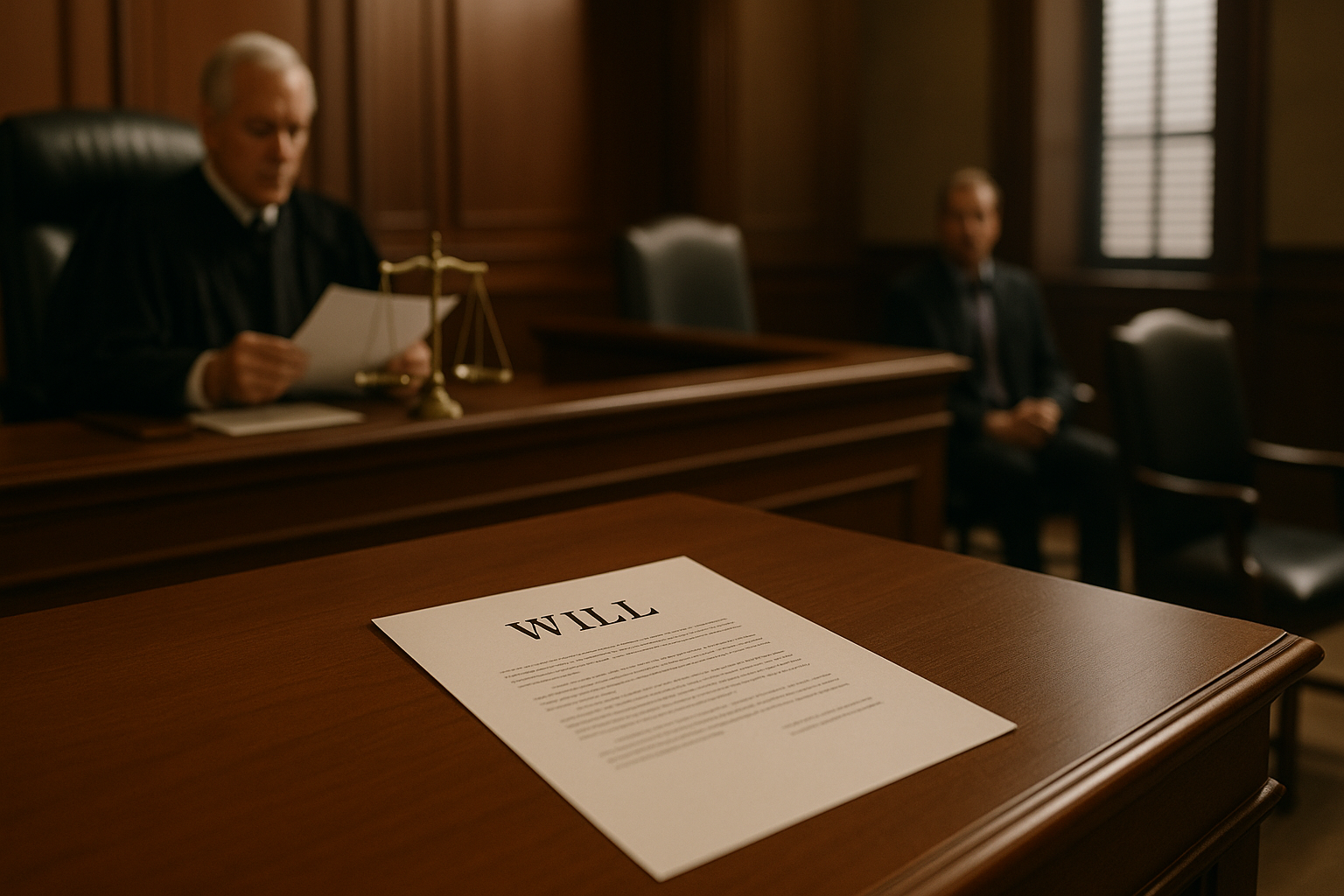Although many wills in New York are admitted to probate without live testimony—thanks to a properly executed self-proving affidavit—issues can arise when no such affidavit exists or when the court has concerns about the will’s execution. In those cases, SCPA § 1405 addresses what happens when attesting witness testimony is required but cannot be obtained in the usual way—because witnesses are unavailable, forgetful, or even hostile. The statute allows courts to admit a will to probate even without direct testimony, provided certain conditions are met. This prevents technical problems from defeating a valid will.
Here is the full text of SCPA 1405, which governs when the court may dispense with witness testimony during probate.
§ 1405. When court may dispense with testimony of witness
1. The death, absence from the state or incompetency of an attesting witness required to be examined as prescribed in this or the preceding section or the fact that the witness cannot with due diligence be found within the state or cannot be examined as an attesting witness by reason of his physical or mental condition may be shown by affidavit or by any competent evidence and when so shown to its satisfaction, the court may by the decree on probate or by order either in writing or entered in the minutes dispense with the testimony of such attesting witness. Where the testimony of an attesting witness has been dispensed with as provided in this section and 1 attesting witness has been examined the will may be admitted to probate upon the testimony of the attesting witness who has been examined without further or additional proof.
2. Where an attesting witness is absent from the state and it is shown that his testimony can be obtained with reasonable diligence the court may and shall upon the demand of any party require his testimony be taken by commission.
3. Where an attesting witness has forgotten the occurrence or testifies against the execution of the will and at least 1 other attesting witness has been examined the will may be admitted to probate upon the testimony of the other witness or witnesses and such other facts as would be sufficient to prove the will.
4. If all of the attesting witnesses are dead or incompetent or unable to testify by reason of physical or mental condition or are absent from the state and their testimony has been dispensed with as provided in this section the will may nevertheless be admitted to probate upon proof of the handwriting of the testator and of at least one of the attesting witnesses and such other facts as would be sufficient to prove the will.
SCPA § 1405 reflects a practical approach to probate: It allows courts to accept alternate forms of proof when witnesses are unavailable or uncooperative.
What follows is a closer look at how this statute works in practice and the strategic considerations it raises.
🔑 This post is for paying subscribers only
Sign up now and upgrade your account to read the post and get access to all premium content that is only for paying subscribers.
🔑 This post is for subscribers only
Sign up now to read the post. To get access to the full library of premium content, you must be a paying subscriber.
Already have an account ? Sign in
- Probate
- Estate Litigation
- Estates
- Handwriting Affidavit
- Matter of Lobuono
- New York
- NY SCPA 1405
- NY SCPA 1405(4)
- 🔑 Premium Content
- Wills: Self-Proving Affidavit
- Wills: Execution
Hani Sarji
New York lawyer who cares about people, is fascinated by technology, and is writing his next book, Estate of Confusion: New York.





Related News
Nudged Into Probate: New York’s Bank Account Proposal Will Lead to More Probate for Unmarried People
Jun 12, 2025
🔑 NY: Sample Petition to Compel the Production and Filing of a Will
May 21, 2025 — Premium
🔑 Sample NY Forms: Applications to Dispense with Testimony of Attesting Witnesses
May 04, 2025 — Premium